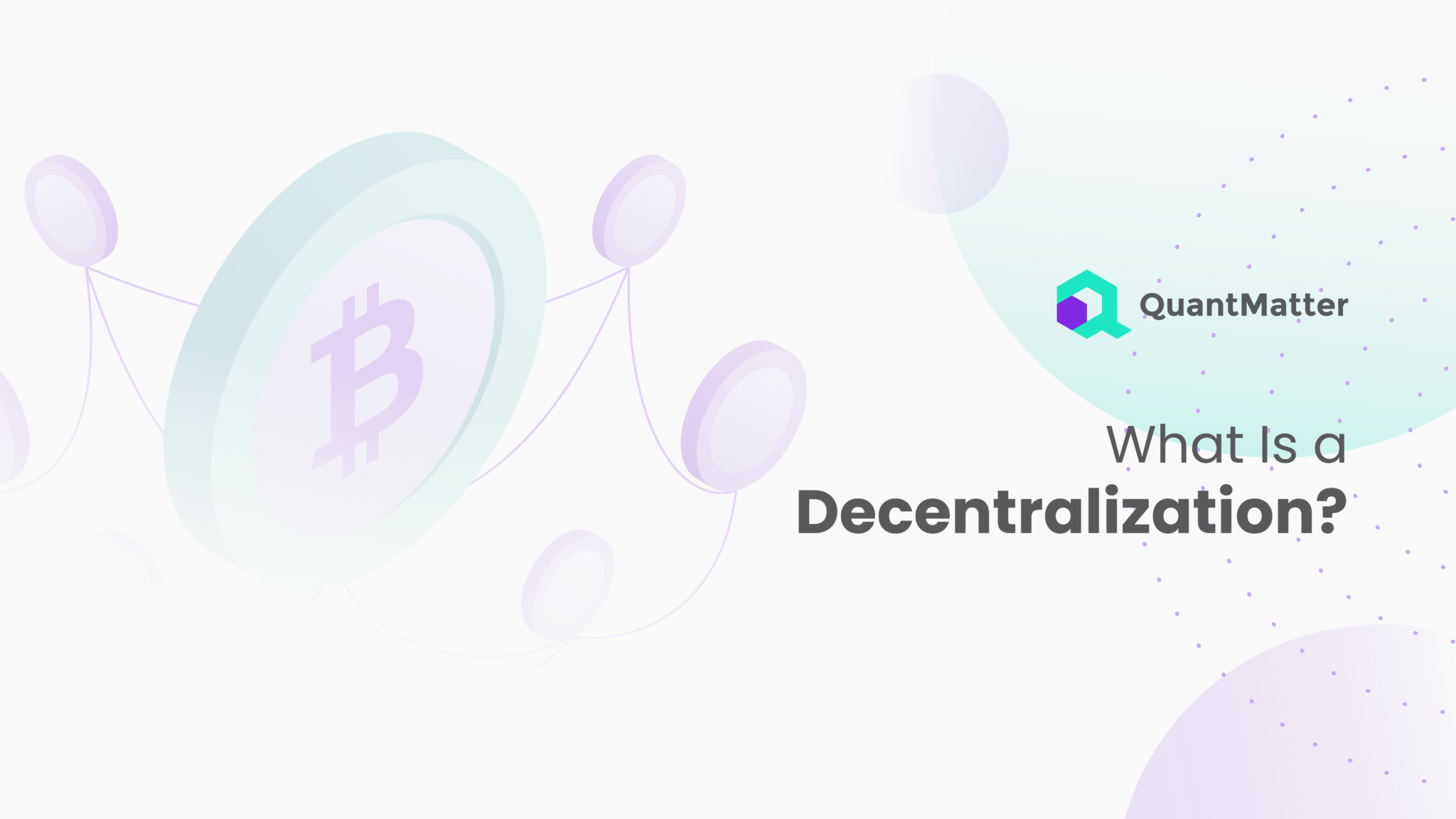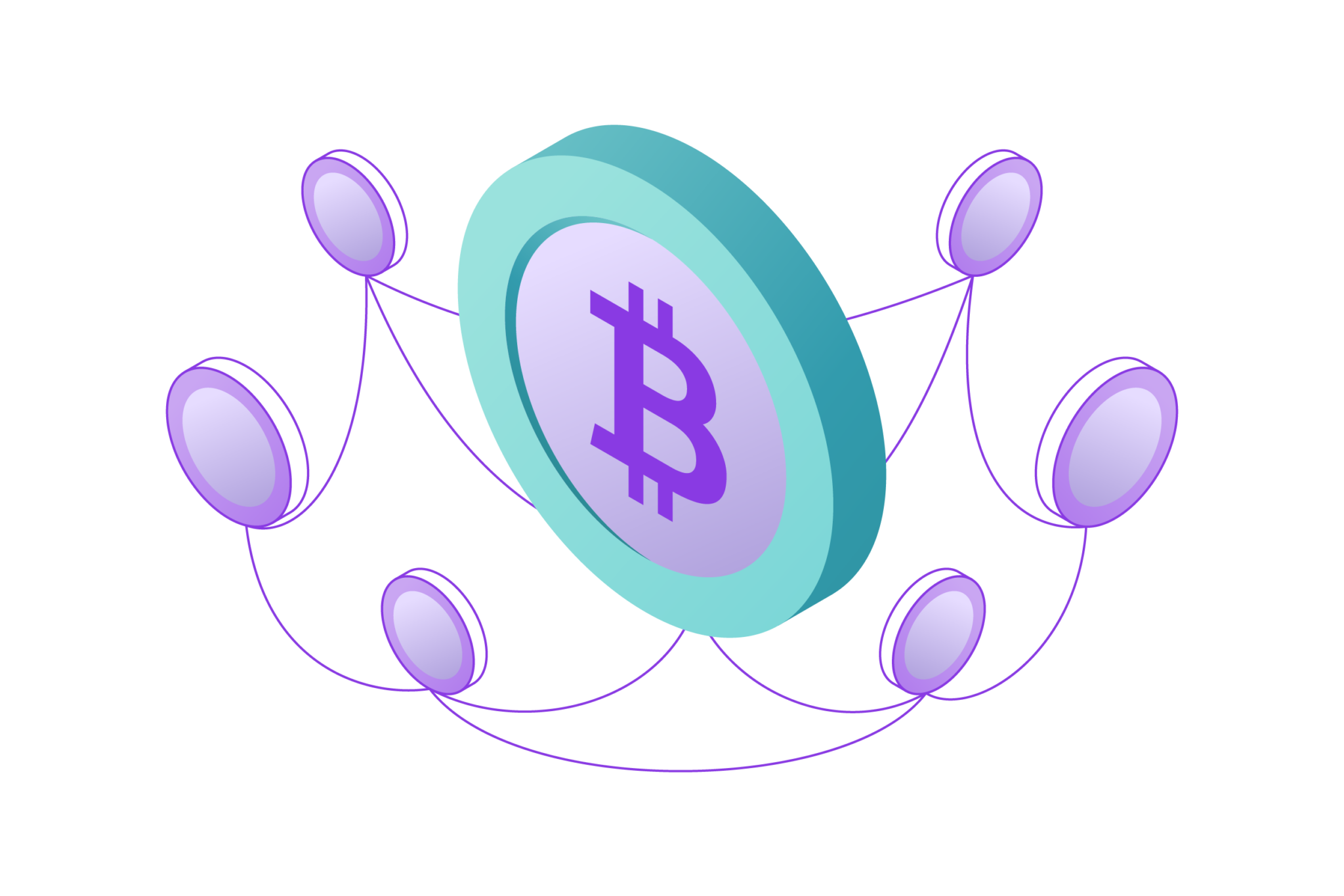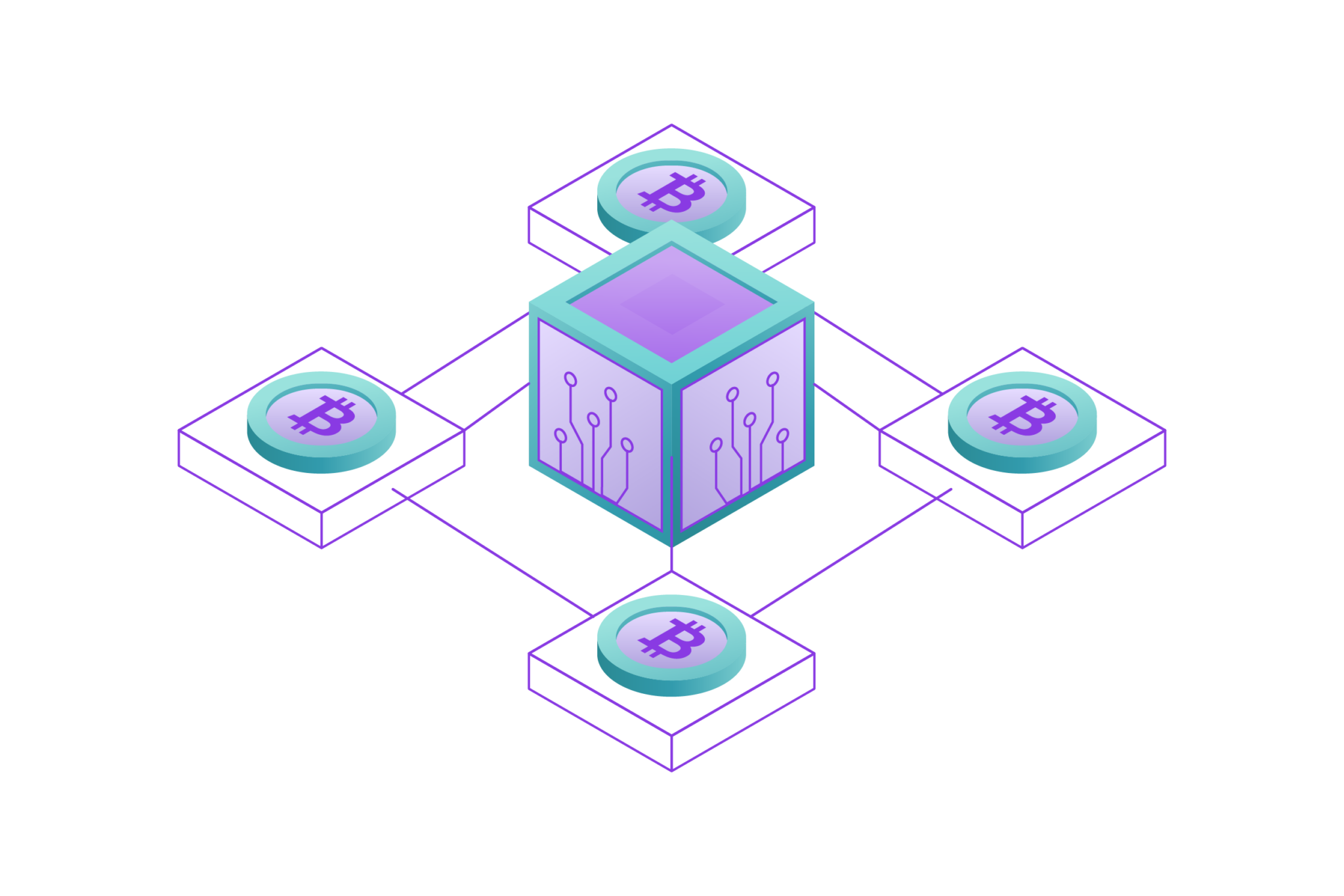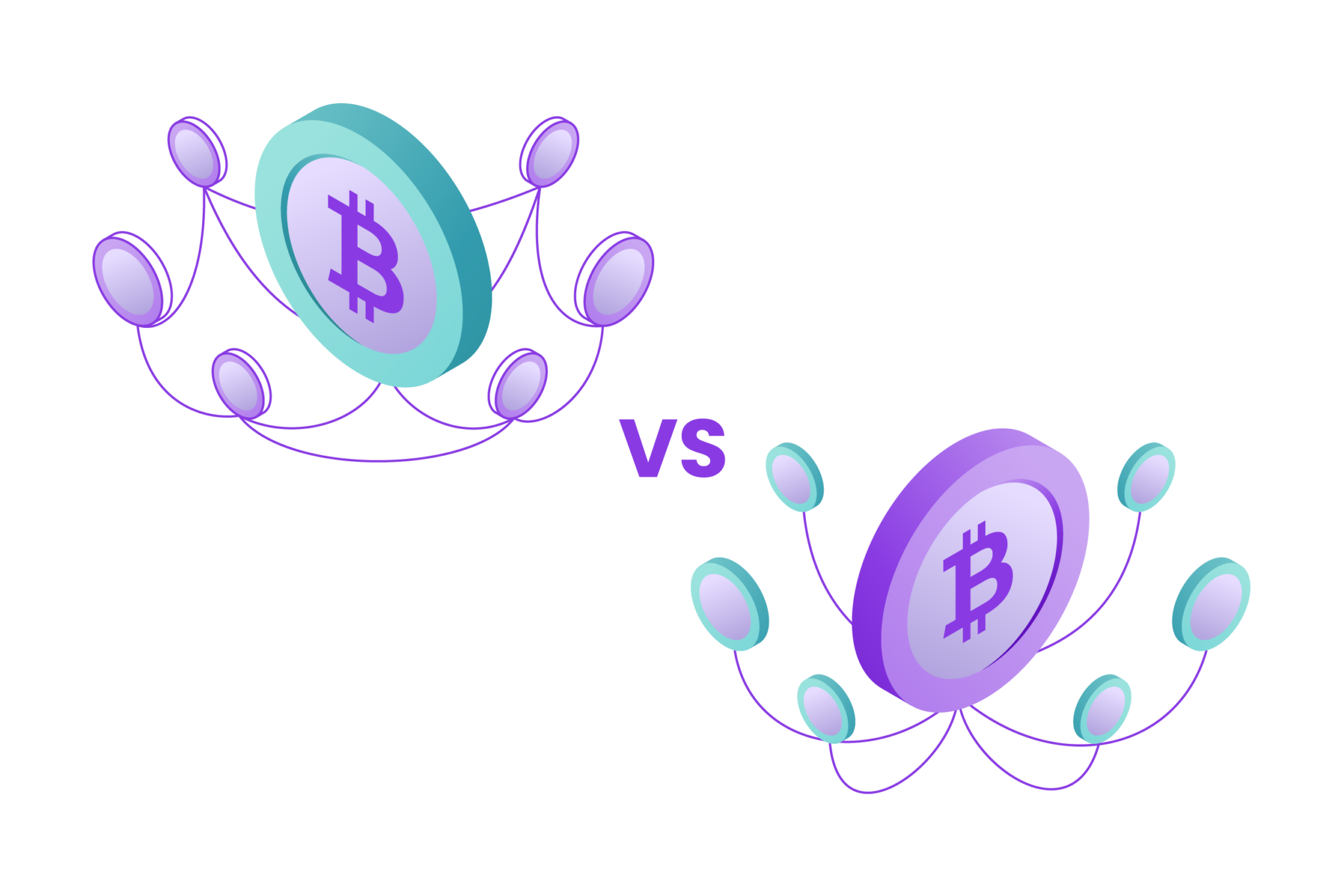
In a world where digital technology is rapidly evolving, the term “decentralization” frequently surfaces, especially in discussions surrounding blockchain technology. But what exactly does decentralization mean, and why is it so crucial to the foundation of blockchain technology? At its core, decentralization is a radical departure from traditional centralized systems, offering a new blueprint for distributing power and control.
Decentralization refers to the process of dispersing functions, powers, people, or things away from a central location or authority. Within the context of blockchain, it implies that instead of having a central point of control, as is the case with traditional financial institutions, blockchain operates on a distributed ledger that allows data to be stored across a network of computers worldwide. This fundamental attribute ensures transparency, security, and integrity in transactions and data management.
Understanding decentralization requires delving into its mechanics, its implications on privacy, security, and how it fosters a new era of technology that champions user sovereignty and trustless transactions. As we embark on this exploration, we’ll uncover how decentralization not only powers blockchain technology but also heralds a new wave of digital architecture that promises to reshape our digital world.
What is Decentralization?

Decentralization is a foundational concept that extends beyond its critical role in blockchain technology, embodying a transformative approach to how power and control are distributed across various systems and structures. At its core, decentralization seeks to dismantle the traditional concentration of authority, dispersing power away from a central entity and distributing it among multiple, often autonomous, participants. This shift is pivotal in numerous domains, including governance, economics, and technology, especially in the development and operation of blockchain networks.
Blockchain technology, renowned for its ability to enable secure and transparent digital transactions, leverages decentralization as a key mechanism. By doing so, it ensures that no single point of control can dominate the system, thereby enhancing security, trust, and resilience against attacks or failures. This principle is particularly potent in the context of digital currencies like Bitcoin, where decentralization mitigates the risks associated with centralized financial systems, such as fraud, censorship, or the manipulation of information.
The implications of decentralization stretch far beyond blockchain and cryptocurrencies. In governance, for instance, decentralizing power can lead to more participatory and representative decision-making processes, potentially resulting in more equitable and responsive governance structures. Similarly, in the digital realm, decentralization challenges the monopolistic control of data by major corporations, advocating for a more distributed and user-empowered approach to data ownership, privacy, and exchange.
Also Read: 5 Ways to Navigate Challenges in Market Research
Furthermore, the rise of decentralized technologies has sparked a reevaluation of how digital networks and services are structured, promoting alternatives to centralized models of internet services, data storage, and even content distribution. This shift towards decentralization is seen as a means to reclaim privacy, enhance security, and foster innovation through open, collaborative ecosystems.
Decentralization is not just a technical feature of blockchain but a broader philosophical and practical approach to reimagining power dynamics across various sectors. By advocating for the dispersion of control and the empowerment of individual actors within a system, decentralization presents a radical alternative to the centralized structures that dominate much of our world today, promising a future where systems are more democratic, secure, and resilient.
The Role of Decentralization in Blockchain

The role of decentralization in blockchain technology is foundational and transformative, shaping not only how data is stored and managed but also redefining trust, security, and governance in digital interactions. Decentralization, at its core, refers to the distribution of power, authority, and operational capabilities away from a central location or authority, dispersing it across a network of participants or nodes. This fundamental characteristic has profound implications in the context of blockchain.
Enhancing Security and Trust
One of the most significant advantages of decentralization in blockchain is the enhancement of security and trust. Since data is not stored in a single location but rather distributed across many nodes in the network, it becomes exceedingly difficult for hackers to compromise the integrity of the entire system. Each transaction on a blockchain is verified by multiple nodes, which must reach a consensus for the transaction to be validated and recorded. This consensus mechanism ensures that no single entity can control or manipulate the data, fostering a trustless environment where parties do not need to trust each other but can instead rely on the technology’s inherent security features.
Reducing Dependency and Risks
Decentralization reduces the dependency on a single point of failure, such as a central server or an organization. In traditional centralized systems, if the central repository is compromised, the entire system can be at risk. However, in a decentralized blockchain network, even if one or several nodes are attacked or fail, the system continues to operate effectively, ensuring continuity and reliability of service. This resilience to attacks and operational failures makes blockchain particularly appealing for critical data management and transactional applications across various industries.
Promoting Transparency and Accountability
Blockchain’s decentralized nature inherently promotes transparency and accountability. Each transaction is recorded on a public ledger (or a permissioned ledger with restricted access), visible to all participants. This transparency ensures that all transactions are traceable and auditable, allowing for a high degree of accountability. In scenarios where transparency is crucial, such as in supply chain management or public sector applications, blockchain can offer a verifiable and immutable record of transactions and interactions.
Empowering Users and Innovating Governance
Decentralization also empowers users by giving them control over their data and transactions, in contrast to traditional models where corporations or governments hold significant control. This shift has implications for governance, both in terms of digital assets and broader societal governance models. By leveraging decentralized decision-making processes, such as those enabled by Decentralized Autonomous Organizations (DAOs), blockchain technology is experimenting with and innovating new forms of governance that are more participatory and democratic.
Facilitating Interoperability and Collaboration
Finally, decentralization facilitates interoperability and collaboration across different blockchain networks and applications. By fostering a more open and collaborative ecosystem, it enables diverse systems to work together and share information securely and efficiently. This interoperability is key to achieving widespread adoption and realizing the full potential of blockchain technology across different sectors and use cases.
Decentralization is not just a technical feature of blockchain but a paradigm shift that challenges traditional models of trust, governance, and operations. Its implications extend beyond the technology itself, offering new opportunities for innovation, security, and collaboration in the digital age.
Decentralization vs. Centralization: A Comparative Analysis

The debate between decentralization and centralization is a fundamental theme across various domains such as technology, governance, finance, and organizational structure. Each approach has its own set of advantages and challenges, influencing efficiency, decision-making, innovation, and control. This comparative analysis delves into the key aspects of both models, providing insights into their impact on society, economy, and individual entities.
Decentralization
Decentralization refers to the dispersion of functions, powers, people, or things away from a central location or authority. In a decentralized system, decision-making is spread among various actors or nodes, each operating independently.
Advantages:
- Resilience and Redundancy: Decentralized systems are less prone to failure because they don’t have a single point of failure. This dispersion ensures that the system can continue operating even if parts of it fail.
- Innovation and Flexibility: With multiple actors making decisions, there’s a higher likelihood of innovative solutions and approaches emerging. Decentralization can adapt more quickly to local needs and changes in the environment.
- Empowerment and Engagement: By distributing authority, individuals and local units feel more empowered and involved in decision-making, which can lead to higher engagement and satisfaction.
- Security and Privacy: Decentralized networks, especially in technology, can offer enhanced security and privacy since there is no central data repository for hackers to target.
Challenges:
- Coordination and Efficiency: The lack of a central command can lead to inefficiencies and difficulties in coordination among decentralized units.
- Inconsistency and Quality Control: Maintaining standards and consistency can be challenging, as varying decisions and practices may lead to uneven quality.
- Complexity in Governance: Establishing a governance model that balances autonomy with coherence across decentralized units can be complex.
Centralization
Centralization involves concentrating control and authority in a single point or location, often in the hands of a central authority or a small group of individuals.
Advantages:
- Efficiency and Coordination: Centralized systems can achieve high levels of efficiency through streamlined decision-making processes and coordination of resources and efforts.
- Consistency and Standardization: Centralized control facilitates the enforcement of standards, policies, and procedures, ensuring consistency across the organization or system.
- Simplicity in Governance: Decision-making and governance structures are simpler and more straightforward, with clear lines of authority and responsibility.
- Easier Implementation of Strategic Vision: A centralized authority can more easily set and implement a strategic vision, ensuring that all parts of the organization or system align with overarching goals.
Challenges:
- Risk of Single Point of Failure: Centralized systems are vulnerable to the failure of the central node or authority, potentially crippling the entire system.
- Slower Adaptation to Local Needs: Centralized systems may not respond as quickly or effectively to local conditions or changes, potentially leading to suboptimal decisions.
- Potential for Abuse of Power: Concentrating power in the hands of a few increases the risk of abuse, as there may be fewer checks and balances.
The choice between decentralization and centralization depends on the specific goals, context, and requirements of the system or organization in question. Hybrid models often emerge, seeking to balance the strengths and mitigate the weaknesses of both approaches. In technology, for example, blockchain represents a decentralized model offering security and transparency, while traditional banking systems illustrate the efficiency and control of centralization.
In governance, federal systems combine elements of both to balance national cohesion with regional autonomy. Ultimately, the effectiveness of either model is contingent upon how well it aligns with the objectives it seeks to achieve and its ability to evolve in response to changing needs and challenges.
The Impact of Decentralization on Industries and Governance
The impact of decentralization on various industries and governance is a vast and transformative subject, touching on many facets of modern society. Decentralization, in essence, is the process of distributing and dispersing power away from a central authority. While the concept is often associated with blockchain and cryptocurrencies, its applications and implications extend far broader and deeper.
Finance
In the financial sector, decentralization has led to the emergence of decentralized finance (DeFi). DeFi represents a shift from traditional, centralized financial systems to peer-to-peer finance enabled by decentralized technologies built on blockchain. This transition allows for financial services, including borrowing, lending, and trading, to occur without the need for intermediaries such as banks. This can significantly reduce fees, improve transaction speeds, and enhance access to financial services for unbanked populations worldwide.
Healthcare
The healthcare industry is exploring decentralization to improve data management and patient care. Decentralized health records can empower patients by giving them control over their data, ensuring privacy and security while facilitating seamless data sharing among authorized healthcare providers. This can lead to more personalized and efficient healthcare services, improved patient outcomes, and enhanced research capabilities through secure and consented data sharing.
Supply Chain Management
Decentralization in supply chain management can introduce transparency and traceability into the system. By leveraging technologies such as blockchain, companies can create immutable records of product origin, manufacturing, and distribution processes. This can help in verifying the authenticity of products, reducing fraud, and improving efficiency by eliminating redundant processes and paperwork. Moreover, it can enhance consumer trust by providing transparent product histories.
Governance
On the governance front, decentralization offers innovative models for democratic participation and decision-making. Decentralized autonomous organizations (DAOs) are one such model, where organizational governance is codified into smart contracts on a blockchain. This allows for transparent, participatory decision-making processes without the need for central oversight. Such models could redefine how communities and even nations govern themselves, offering pathways to more direct and participatory forms of democracy.
Future Prospects
The future prospects of decentralized technologies are vast. They promise to democratize access to services, enhance privacy and security, and foster innovation through open, transparent systems. However, challenges remain, including regulatory hurdles, scalability issues, and the need for widespread adoption and understanding of these technologies.
The impact of decentralization extends across numerous sectors, offering the potential to revolutionize industries and governance. By enhancing efficiency, transparency, and participation, decentralized models could shape a more equitable and open future. However, realizing this potential will require collaborative effort, innovative thinking, and a commitment to navigating the challenges that lie ahead.
Challenges and Limitations of Decentralization
Decentralization, heralded for its promise to democratize control and operations across various sectors, faces significant hurdles that temper its widespread adoption. Among these challenges, scalability stands out; as decentralized networks grow, they often become slower and less efficient, particularly evident in blockchain technologies where increased transactions can congest the network. Additionally, the energy demands of these systems, especially those relying on Proof of Work (PoW) for consensus, have raised environmental concerns, with the energy usage of networks like Bitcoin rivaling that of small countries.
Another concern with decentralization is its potential to facilitate illicit activities. The inherent anonymity and lack of centralized oversight in decentralized systems can make them attractive for illegal trade, money laundering, and other criminal behaviors. This risk underscores the delicate balance needed between maintaining privacy and ensuring security within these systems. Moreover, transitioning to a decentralized model requires a significant shift in both culture and operations for businesses, governments, and individuals, demanding new skills and a foundational trust in a system vastly different from the centralized models that predominate today.
Also Read: Blockchain Security: Overcoming Challenges and Future Perspectives
To address these issues, the blockchain community and other sectors are innovating and adapting. Efforts to improve scalability include the development of layer-2 solutions, which process transactions off the main blockchain to enhance speed and efficiency. The shift towards more sustainable consensus mechanisms, like Proof of Stake (PoS), aims to mitigate the environmental impact. Moreover, advancements in identity verification and regulatory collaboration are being pursued to combat the use of decentralized networks for illicit activities while preserving their core values of privacy and security.
As the blockchain and broader communities strive to overcome these challenges, the path towards decentralization remains fraught with complexities. It necessitates not only technological innovation but also a cultural shift towards new ways of operating and regulating. The ongoing dialogue between regulators, developers, and users is crucial for balancing the benefits of decentralization with its potential risks, ensuring a transition that is both innovative and secure. This journey towards decentralization, while uncertain, holds the promise of transforming how society operates, provided these hurdles can be effectively navigated.
Conclusion
Decentralization stands as a cornerstone principle of blockchain technology, offering a new paradigm for how we conceive of and interact with digital systems. By distributing control and authority, decentralization enhances security, transparency, and efficiency, challenging the traditional centralized models that have dominated the digital landscape. As we look towards the future, the continued exploration and adoption of decentralized models hold the promise of a more democratic, secure, and equitable digital world.
The journey towards understanding and embracing decentralization is ongoing, and its full potential is yet to be realized. As industries and governments begin to experiment with and implement decentralized systems, the lessons learned and the challenges overcome will pave the way for a more resilient and open digital infrastructure. In this era of digital transformation, decentralization is not just a feature of blockchain technology; it is a revolutionary approach that redefines the fabric of digital interaction and governance, promising a future where power and control are more evenly distributed.
Disclaimer: The information provided by Quant Matter in this article is intended for general informational purposes and does not reflect the company’s opinion. It is not intended as investment advice or a recommendation. Readers are strongly advised to conduct their own thorough research and consult with a qualified financial advisor before making any financial decisions.

Joshua Soriano
As an author, I bring clarity to the complex intersections of technology and finance. My focus is on unraveling the complexities of using data science and machine learning in the cryptocurrency market, aiming to make the principles of quantitative trading understandable for everyone. Through my writing, I invite readers to explore how cutting-edge technology can be applied to make informed decisions in the fast-paced world of crypto trading, simplifying advanced concepts into engaging and accessible narratives.
- Joshua Soriano#molongui-disabled-link
- Joshua Soriano#molongui-disabled-link
- Joshua Soriano#molongui-disabled-link
- Joshua Soriano#molongui-disabled-link
